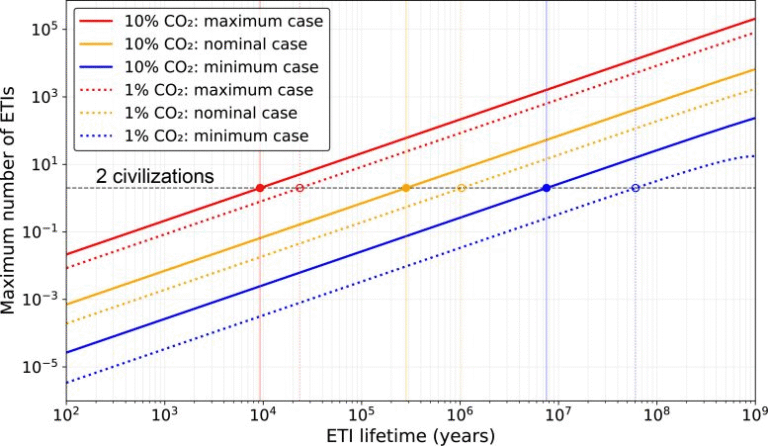How Student Motivation Shapes Study Habits and Academic Performance

A new study from the University of Georgia offers a detailed look at how students’ underlying motivation influences the way they study—and ultimately, how well they perform academically. The researchers examined the relationship between learning goals, study strategies, and final grades, and their findings point to a clear pattern: students who care about mastering the material and improving themselves tend to learn more effectively than those who are simply trying to scrape by or outperform others.
This research, published in the European Journal of Engineering Education, surveyed nearly 300 undergraduate students and mapped out how their approach to learning connects to actual academic outcomes. The study gives us a straightforward message—why students study directly shapes how they study, which then impacts what they achieve.
What the Study Found About Student Mindset
The researchers broke student motivation into different types of goals. Some students aim to understand and grow, some aim to improve their own skills, and some aim to perform better than their peers. These motivations play a big role in the choice of study strategies.
Students typically use one of two general approaches:
- Surface-level strategies like skimming readings, memorizing definitions just long enough to take a test, or cramming.
- Deep learning strategies such as testing themselves, making meaningful connections between concepts, thinking critically, or relating class ideas to real experiences.
According to the results, students who use deep strategies earn higher grades. These students focus on personal improvement and mastery, not just getting through the course. Their mindset encourages them to take time with the material, explore it thoroughly, and engage with it in ways that strengthen understanding.
In contrast, students who only want to secure the credit for a course—often because they don’t consider it relevant to their major—fall back on quick, surface-level approaches. These strategies tend to produce lower performance.
Interestingly, students driven by comparison—those who are motivated mainly by outperforming peers—do show some engagement with learning strategies, but this motivation doesn’t consistently translate into better grades. Competition alone isn’t as effective as a growth-oriented mindset when it comes to real academic success.
Why Mastery-Focused Goals Matter
One important takeaway is that a mastery-focused mindset naturally supports better learning habits.
Students with this mindset ask questions like:
- What can I learn from this?
- How do these ideas connect?
- How can I improve on what I know?
This approach pushes them toward methods that help them retain information, understand concepts deeply, and apply knowledge to new problems. Ultimately, these behaviors reinforce each other: deeper strategies boost confidence, which strengthens the desire to keep improving.
The study makes it clear that self-improvement goals lead directly to smarter study strategies, and those strategies lead directly to stronger grades.
The Limits of Outperforming Others
While some students are motivated by competition, the research found that this motivation doesn’t reliably result in higher academic performance. Competitive students may work hard, but their focus is not on learning—it’s on beating other people. This can lead to stress, inefficient study habits, or inconsistent engagement with the material.
The researchers point out that grade improvement isn’t about competition at all. It’s about how a student approaches the material itself.
Rather than competing with classmates, students benefit more from competing with their own past performance.
The Role of Instructors in Shaping Mindset
Teachers can play a major role in encouraging students to adopt healthier, more effective learning approaches. According to the study, instructors should create opportunities that reinforce deeper engagement.
Useful approaches include:
- Providing problem-solving tasks that require students to apply what they’ve learned
- Encouraging reflection, helping students think about how new information fits into what they already know
- Offering feedback that guides improvement instead of focusing only on correctness
- Letting students revise work, which reinforces growth and reduces grade anxiety
These strategies help shift the focus away from grades and toward meaningful learning. The researchers emphasize that grades do matter—just not as much as the process of learning itself. Students should have multiple opportunities to think about their progress, understand what they’ve learned, and identify what they need to work on.
Why Study Strategies Make Such a Difference
This research aligns with decades of learning science showing that deep strategies support stronger memory, better comprehension, and higher achievement.
Here’s why:
- Deep processing improves retention.
When students make connections, solve problems, or explain concepts in their own words, they strengthen long-term understanding. - Active learning outperforms passive reading.
Self-testing and summarizing force the brain to reconstruct ideas, which improves recall. - Reflection supports metacognition.
Students who reflect become more aware of what they understand and what they don’t, making their study time more efficient. - Application builds expertise.
Applying knowledge to real-world scenarios helps students transfer what they learn beyond the classroom.
These benefits explain why mastery-oriented students consistently outperform those who study only for the grade.
Extra Insight: What Other Research Says About Motivation and Learning
Outside this specific study, a large body of educational research supports the same themes.
- Students with mastery goals tend to show higher persistence, better problem-solving, and deeper interest in learning.
- Students with performance-avoidance goals (fear of looking incompetent) often struggle the most, showing higher anxiety and weaker outcomes.
- Learning environments that emphasize growth, effort, and reflection shape better long-term learning habits than environments that emphasize competition or grades.
Overall, motivation shapes behavior, and behavior shapes performance. This study fits into a much broader framework showing how mindset directly impacts academic success.
What This Means for Students Today
If you’re a student, the message is clear:
Adopting a growth-focused, mastery-driven mindset can significantly improve both how you study and how well you perform.
Some helpful shifts include:
- Study with the goal of understanding, not just passing.
- Use strategies that require engagement, such as self-testing and summarizing.
- Reflect regularly on what you know and what you need to improve.
- View challenging material as an opportunity to grow rather than an obstacle.
The takeaway is simple but powerful: Better motivation leads to better strategies, which lead to better learning.
Research Paper
Investigating the effects of students’ achievement goal orientation and learning strategies on academic achievement
https://doi.org/10.1080/03043797.2025.2553716





